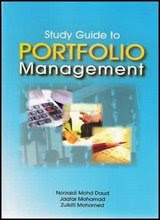Journal
Information Management & Computer Security (IMCS)
Publisher
Emerald, UK
Authors
Intan Salwani Mohamed, Universiti Teknologi MARA Malaysia
Dr. G. Marthandan, Multimedia University
Dr. Norzaidi Mohd Daud, Universiti Teknologi MARA Malaysia
Dr. Chong Siong Choy, Putra International College
Citation
Information Management & Computer Security (IMCS)
Publisher
Emerald, UK
Authors
Intan Salwani Mohamed, Universiti Teknologi MARA Malaysia
Dr. G. Marthandan, Multimedia University
Dr. Norzaidi Mohd Daud, Universiti Teknologi MARA Malaysia
Dr. Chong Siong Choy, Putra International College
Citation
SCOPUS: 22
Abstract
Purpose – Based upon the E-VALUE model, this paper investigates the impact of e-commerce usage on business performance in the Malaysian tourism sector.
Design/methodology/approach – A cross-sectional survey was carried out on 217 Malaysian firms involved in the tourism sector (hotels, resorts and hospitals engaged in health tourism) through the use of a structured questionnaire.
Findings - The structural equation modeling (SEM) results indicate that technology competency, firm size, firm scope, web-technology investment, pressure intensity, and back-end usage have significant influence on e-commerce usage. Among these variables, back-end integration is found to function as mediator. E-commerce experience (in years) is found to moderate the relationship between e-commerce usage and business performance.
Research limitations/implications – The study focuses on the tourism sector in Malaysia and concentrates only on the management perspective of e-commerce adoption.
Practical implications - The results provide insights to the Malaysian tourism sector and other organizations of similar structures of how they could improve upon their e-commerce adoption and/or usage for improved business performance.
Originality/value – This study is perhaps one of the first to investigate e-commerce usage in the tourism sector using a comprehensive set of variables through an interactive, comprehensive and multi-dimensional theoretical model (the E-VALUE model) in investigating their influences on business performance.
Keywords: E-VALUE model, e-commerce adoption, usage, business performance, tourism industry, Malaysia.
Abstract
Purpose – Based upon the E-VALUE model, this paper investigates the impact of e-commerce usage on business performance in the Malaysian tourism sector.
Design/methodology/approach – A cross-sectional survey was carried out on 217 Malaysian firms involved in the tourism sector (hotels, resorts and hospitals engaged in health tourism) through the use of a structured questionnaire.
Findings - The structural equation modeling (SEM) results indicate that technology competency, firm size, firm scope, web-technology investment, pressure intensity, and back-end usage have significant influence on e-commerce usage. Among these variables, back-end integration is found to function as mediator. E-commerce experience (in years) is found to moderate the relationship between e-commerce usage and business performance.
Research limitations/implications – The study focuses on the tourism sector in Malaysia and concentrates only on the management perspective of e-commerce adoption.
Practical implications - The results provide insights to the Malaysian tourism sector and other organizations of similar structures of how they could improve upon their e-commerce adoption and/or usage for improved business performance.
Originality/value – This study is perhaps one of the first to investigate e-commerce usage in the tourism sector using a comprehensive set of variables through an interactive, comprehensive and multi-dimensional theoretical model (the E-VALUE model) in investigating their influences on business performance.
Keywords: E-VALUE model, e-commerce adoption, usage, business performance, tourism industry, Malaysia.












No comments:
Post a Comment